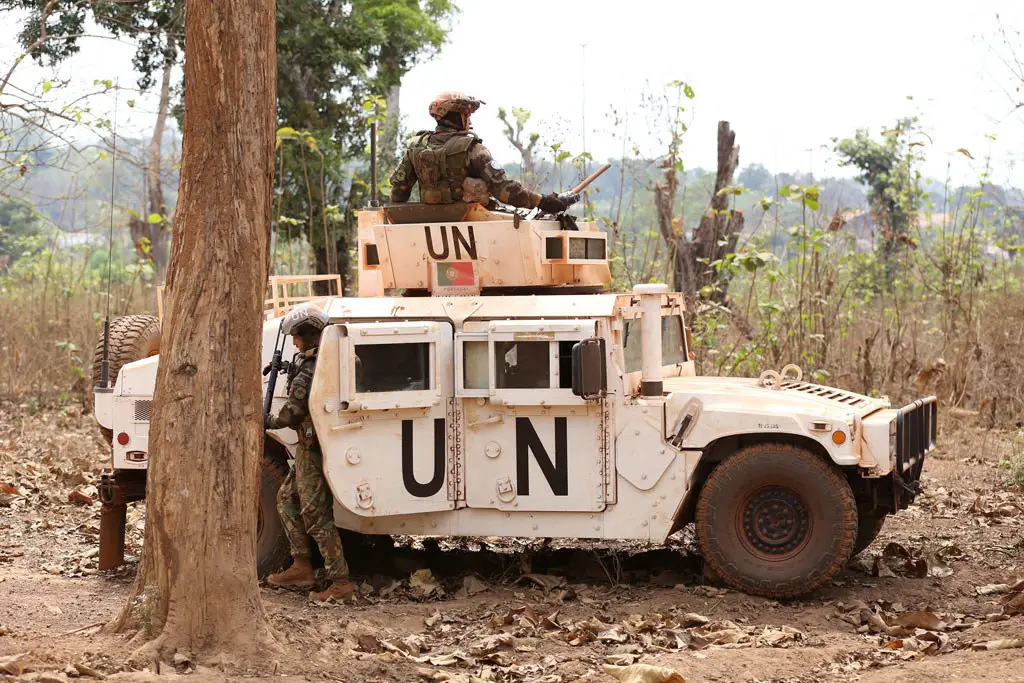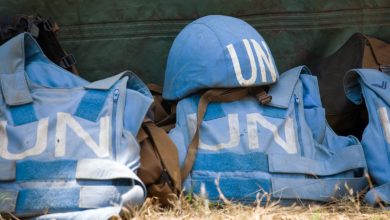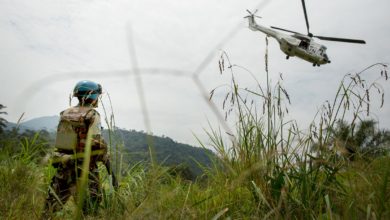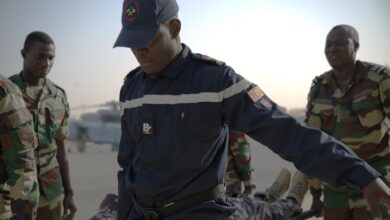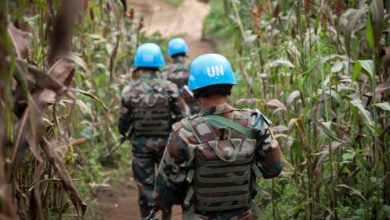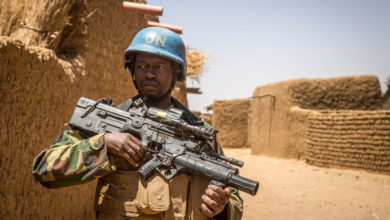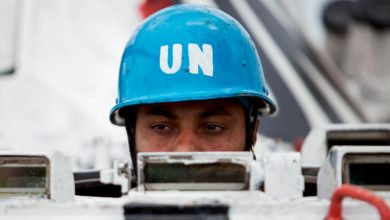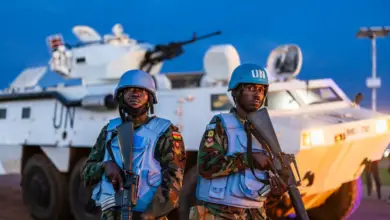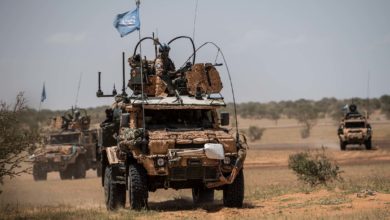United Nations peacekeepers have clashed with a local militia in western Central African Republic, little more than two months after a deal was agreed aimed at restoring peace to the troubled country, the U.N. said.
Five members of the Democratic Front of the Central African People (FDPC) were killed after the U.N. peacekeeping force MINUSCA launched an operation against the group on Friday, according to an internal note seen by AFP.
The FDPC said it had lost three of its members.
MINUSCA “has launched discussions (with the FDPC), which are ongoing,” the force’s spokesperson, Vladimir Monteiro, told AFP on Tuesday.
A U.N. peacekeeper was wounded in the fighting but left hospital on Tuesday, Monteiro said.
The U.N. accused the FDPC of setting up roadblocks at Zoukombo on Highway 1, the only road linking the capital Bangui to Cameroon, and of stealing a dozen pickup trucks.
Despite reserves of diamonds, gold, uranium, copper and iron, Central African Republic remains one of the world’s poorest countries.
Fighting broke out between the Seleka, a coalition of mainly Muslim rebel groups, and the mainly Christian anti-balaka militia in 2012. A peace deal was signed in January 2013, but Seleka rebels captured the capital Bangui that March and ousted President Francois Bozize.
Seleka was officially disbanded within months, but many fighters refused to disarm, becoming known as ex-Seleka. Many others joined the anti-balaka militia to fight the Seleka, leading to a spiral of violence between groups along religious and ethnic lines.
By the end of 2014, CAR was de facto partitioned – anti-balaka in the southwest and ex-Seleka in the northeast.
Elected in 2016, President Faustin-Archange Touadera’s weak government controls around a fifth of the country and relies heavily on the U.N. peacekeeping mission, MINUSCA, for support. The rest is controlled by at least 14 different militia groups who often fight each other for revenue from extortion, roadblocks or mineral resources.
The FDPC is one of 14 armed groups that signed a deal with the government in February – the eighth attempt to bring peace to one of Africa’s most troubled and poorest countries.
Under the peace deal, armed groups were offered seats in an “inclusive” government – a process that proved long and turbulent as some militia chiefs demanded high-status positions.
The new government took office on March 22, but without FDPC leader Abdoulaye Miskine, who declined the ministerial post that was offered him.
However, one of his aides was named “special advisor” to the prime minister, and another was appointed prefect to the Nana-Mambere region in the west of the country.
Humanitarian organizations have stressed the importance of the peace agreement for CAR’s population. Violence since 2012 led to thousands of deaths. Nearly 700,000 people are displaced, 570,000 have fled the country and 2.9 million – 63 per cent of the population – are in need of humanitarian aid, according to the U.N.
With reporting from AFP

